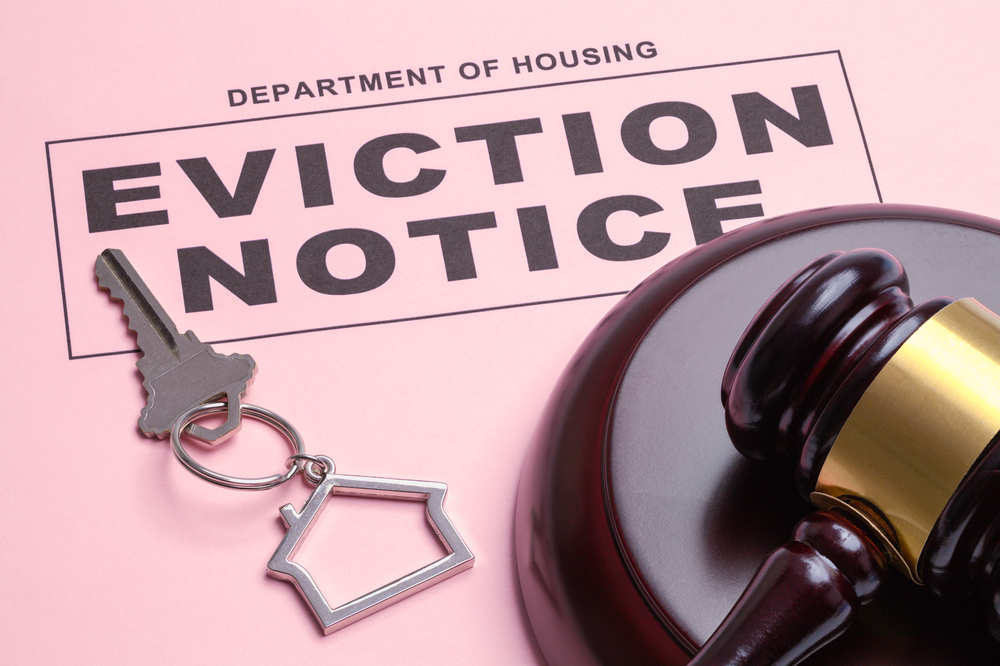In 2024, New York took a major step toward strengthening tenants’ rights by passing Good Cause Eviction protections. However, while the law offers critical defenses against unfair evictions and rent hikes, its complicated eligibility rules mean that many tenants still don’t know whether they are protected. Thanks to advocacy groups like Housing Justice for All and tech non-profit JustFix, new tools are helping renters navigate these complex regulations. Here’s a complete analysis of what tenants need to know about their rights under the Good Cause Eviction law — and how they can protect themselves.
What is “Good Cause Eviction”?
Good Cause Eviction legislation provides certain tenants with the right to:
- Challenge unreasonable rent increases (defined as more than 5% per year or tied to inflation rates).
- Prevent evictions without a valid reason (“good cause” like non-payment of rent or lease violations must be demonstrated).
Before this law, many renters across New York faced evictions at the end of their lease terms without explanation. Now, if covered, they have far greater housing security.
Who is Protected?
Despite the name, not everyone automatically benefits from Good Cause protections. The law contains several carveouts:
- Type of Housing:
- Applies mostly to unregulated apartments (not rent-stabilized, NYCHA, Section 8, etc.).
- Excludes apartments in buildings constructed after 2009.
- Rent Threshold:
- Apartments renting for over $6,005/month are exempt.
- Landlord Size:
- Landlords who own 10 or fewer residential units are exempt.
- Determining the number of units can be tricky due to use of LLCs to mask ownership.
Why Determining Coverage Is Difficult
As City Limits reports, eligibility often depends on information tenants don’t have easy access to:
- Whether the landlord owns more than 10 units.
- Whether the building qualifies based on age and rent amount.
- Ownership structures hidden behind multiple LLC registrations.
This complexity often leaves tenants unsure whether they can assert their rights.
New Tools: Good Cause NYC Website
Housing Justice for All and JustFix have launched a new online tool (GoodCauseNYC.org) to help.
How it works:
- Tenants enter their address.
- They answer a few questions about rent, landlord details, and building information.
- The tool analyzes public building records and tenant-supplied data to estimate whether the tenant is covered.
In case of uncertainty about the landlord’s holdings, tenants are directed to another tool called WhoOwnsWhat, where they can dig deeper into ownership records.
Key Quote:
“Good Cause Eviction is a powerful tool to prevent evictions and price-gouging, but only if tenants know they have rights.” — Joel Stillman, Director of JustFix
What Protections Mean for Tenants
If a tenant qualifies for Good Cause protections:
- Evictions require justification: A landlord cannot simply refuse to renew a lease without cause.
- Rent increases are limited: Excessive hikes can be legally challenged.
- Tenants can fight back: Enforcement mainly happens in Housing Court, so tenants must be proactive.
Practical Steps for Tenants
- Check Your Status
Use GoodCauseNYC.org to find out if you likely qualify.
- Verify Landlord Information
- Use WhoOwnsWhat.
- Search city property records at NYC ACRIS.
- Know the Grounds for Eviction
“Good cause” includes:
- Non-payment of rent.
- Violation of lease terms.
- Creating a nuisance for neighbors.
- Refusing access for lawful repairs.
Note: Simply reaching the end of a lease is NOT considered good cause.
- Challenge Unfair Rent Hikes
If rent is increased beyond 5% or outside of inflation adjustments, tenants can file a challenge in Housing Court.
- Get Legal Help
If facing eviction:
- Contact tenant advocacy groups (like Housing Justice for All).
- Use resources like Legal Aid Society, Mobilization for Justice, or NYC’s Tenant Helpline (dial 311 and ask for “Tenant Helpline”).
Challenges and Criticisms
While the law represents progress, several challenges remain:
- Burden on tenants: Tenants must assert their own rights in court, which can be intimidating without legal support.
- Incomplete enforcement: Landlords may still try to intimidate or mislead tenants about their rights.
- Confusion about eligibility: Even with new tools, not all situations are clear-cut.
- Exemptions: Wealthier renters and those living in owner-occupied small buildings are left vulnerable.
Housing advocates argue that for Good Cause to have its full intended impact, the state and city must:
- Provide greater funding for tenant education.
- Streamline processes for proving landlord size and property history.
- Penalize landlords who violate the law.
Broader Impact
The Good Cause Eviction law is part of a growing national movement to strengthen tenant protections amid escalating rent costs. Cities like Albany and Hudson have adopted similar rules. However, landlord groups are challenging these laws in court, arguing that they infringe on property rights.
In New York City, this year’s Good Cause rollout will likely serve as a model — or cautionary tale — for other cities weighing similar tenant protections.
Conclusion
Good Cause Eviction protections are a landmark step forward for tenants in New York, offering real defenses against displacement and unreasonable rent increases. However, tenants must be proactive, informed, and assertive to benefit from the law.
The launch of GoodCauseNYC.org is a valuable resource, but real justice will depend on tenant organizing, education, and legal support. As housing costs continue to soar, these protections may be the difference between housing stability and homelessness for many New Yorkers.
Bottom line:
- Check your eligibility now.
- Know your rights.
- Fight for your home.
NYC Good Cause Eviction Tenant Protection Guide (2025)
Important: You MAY have new rights under the Good Cause Eviction law! Follow these steps to protect yourself.
✅ Step 1: Find Out If You’re Covered
Go to GoodCauseNYC.org.
Enter your address and basic info to check eligibility.
✅ Step 2: Verify Landlord and Building Information
If unsure, use WhoOwnsWhat to research landlord ownership.
Check NYC property records at ACRIS.
✅ Step 3: Know Your Rights If You Are Covered
Eviction Protection: Your landlord must have a good cause to evict you (e.g., nonpayment, lease violation).
Rent Increase Protection: Rent increases over 5% or above inflation limits can be challenged.
Lease Renewal: Ending your lease is not automatic grounds for eviction.
✅ Step 4: If You Face Rent Hikes or Eviction
Ask your landlord for written notice explaining the cause.
Do NOT move out immediately.
Contact free legal help:
- Legal Aid Society
- Mobilization for Justice
- NYC Tenant Helpline (Dial 311)
✅ Step 5: Be Prepared to Fight in Housing Court
Bring evidence: Lease agreements, rent receipts, communication with landlord.
Demand that landlord prove “good cause” for eviction.
✅ Step 6: Stay Alert for Illegal Tactics
Watch for illegal eviction threats (e.g., harassment, lockouts, fake notices).
Report landlord violations to 311 immediately.
✅ Step 7: Stay Informed and Connected
Attend local tenant association meetings.
Sign up for updates from Housing Justice for All and local housing advocates.
Remember: If you qualify for Good Cause Eviction protections, your landlord cannot evict you or raise your rent excessively without facing a legal challenge.
Stay put, know your rights, and get help if needed!
Click Here to Schedule a Consultation with Figeroux & Associates Today!



